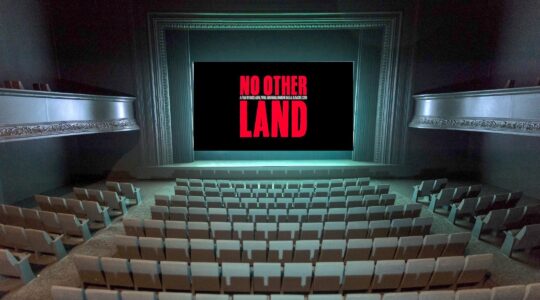Have you ever wanted to hit the reset button on your life? Have you ever found yourself just wishing that you could simply start over? Who hasn’t? And this year, for so many millions of people, that feeling is especially powerful.
With two record-setting hurricanes in as many weeks, a third — Jose — threatening to bring more of the same and major fires burning in the western and northwestern reaches of our nation, the desire to start over is not just some philosophical question brought on by the dawning of a new year. It is an immediate issue of physical survival for millions, and a question about how people, any people, make life and find joy in the wake of such epic loss and destruction.
And even for those of us fortunate enough not to be confronting such massive public losses, who among us have not had an experience we wish we could roll back and start over? Who in their lives over the course of a year has not experienced something over which they wish they could hit the reset button, and start over?
In fact, that desire to start over is one of the best things about us as humans. It is the essence of moving from regret and despair over the past, to accessing our ability to move into a healthier present and a more promising future. After all, it’s not really possible to fix what we don’t admit is broken. So in many ways, the remorseful feeling that comes with looking for our personal reset button is actually the beginning not only of finding it, but of using it to help create the lives we wish we had and the world in which we lived.
At its core, Rosh HaShanah promises each of us that we can find and hit the reset button we seek — whether we seek it individually, as families, as a nation or as part of the global human community. Whether one imagines that the world is 5777 years old, or that it has been around for billions of years, Rosh HaShanah celebrates that it is all reborn again, and we can be as well, if we want to be.
‘Starting over versus working from where you are: Both are always occurring in our lives, in our culture and in our politics.’
Rosh HaShanah promises each of us that we can hit that giant reset button we seek, no matter how big the reset will be. Whether we are talking about the rebuilding of storm-tossed communities, the distribution of health care benefits, the pain of Charlottesville or the current debate about DACA and immigration reform, let alone the “smaller” breakdowns that happen in the arcs of lives on a regular basis, we have options about how to approach the solution we seek — whatever it might be.
The real question is how to get the reset we seek — whether we seek to rebuild a flooded home, repair a washed-out relationship or mend the fabric of our increasingly frayed human community — be it here at home, or around the world.
One path, made popular during debates about healthcare policy, is that of “repeal and replace.” It imagines that starting over is about starting from scratch. It imagines that the best path forward demands that we wipe out the past — be it past health plans, past public monuments, past narratives or past communities — in order to craft the new deals and policies which we want and need. Repeal and replace, whether applied to people, policies or storm-ravaged communities, imagines that we wipe out the past to achieve our goals for the future, and that we must do so by finally and fully letting go of everything that happened in the past to build the future we want.
There is another path, however — the path of “return and renew.” Were we naming this path in Hebrew, we would call it the path of “teshuvah,” which literally means “return.” This path suggests that we don’t necessarily need to fully erase our past in order to realize our hopes and aspirations for a better present and future. In fact, that fresh start or reset for which we yearn has always been a part of us, according to this path, and we are “simply” returning to that positive potential that has always existed within us — now recommitting to renewing its presence in our lives.
Starting over versus working from where you are: Both are always occurring in our lives, in the world, in our culture and in our politics, so we should put aside the debate about which is right, and instead consider when and why each might be the better path to pursue. How might that look? For starters, it might begin by asking a series of questions about any issue where we need to hit that reset button in life.
For example, in what circumstances or around what issues do you most acutely feel the tug to repeal and replace? What would be the genuine benefit found in pursuing a path that requires making a clean break with the past? But before walking down that path, we would also need to do a careful and complete accounting of the costs we incur by doing so — cost to us, and cost to others as well. Whatever we decide, making such breaks is never as cost-free as we often like to imagine.
And how about taking time to consider when and with whom, including yourself, it might be better to return and renew — building on what’s already working, or has worked in the past and even more, to push yourself to see possibilities and potential where you currently see only problems and failure.
Each of these paths can be found in the practices, stories and liturgies of Rosh HaShanah, and the invitation here is less about choosing one; it’s more about carefully and consciously choosing when and where to start walking, especially if we can always appreciate that both paths have real purpose and value when we are celebrating nothing less than our ability to start our lives, and our world, anew.
The New York Jewish Week brings you the stories behind the headlines, keeping you connected to Jewish life in New York. Help sustain the reporting you trust by donating today.




